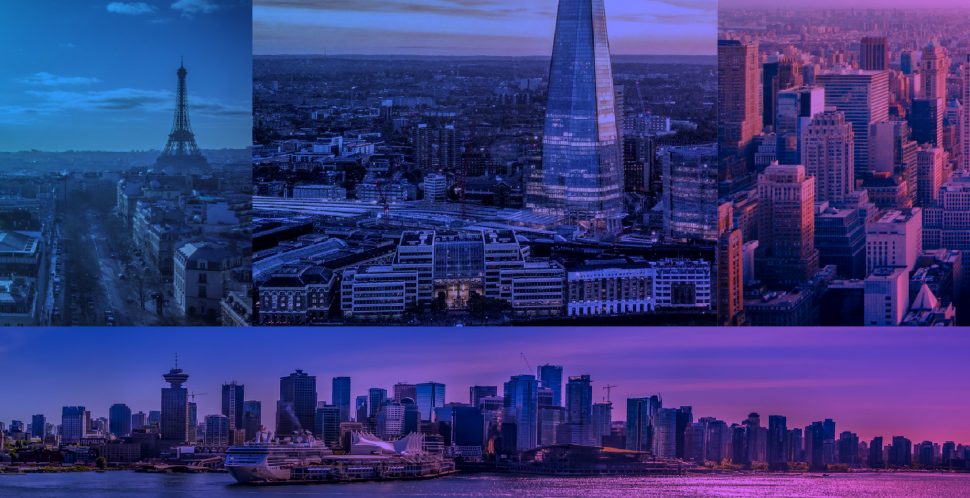Bold. Provocative. Transformative. Sustainable.
Motion pictures are part of our culture, providing a powerful medium for entertainment and education. Any genre, from features to shorts, documentaries to animation, go through the production process. Resources are used every step of the way, whether it be in the supply chain, fuel, lumber, energy, water, paper or human resources, these have an impact. The nature of filmmaking allows for vast creativity yet there can also be vast resource use if left to business as usual.
Climate change is widely thought of as the number one threat facing humanity. It is critical for the motion picture industry to consider how it will adapt. The risks of climate change will likely affect global supply chains, goods and services used as well as our locations and processes for making entertainment.
On October 4th the Vancouver International Film Festival hosts the annual Sustainable Production Forum. This public forum celebrates successful case studies in sustainable filmmaking and explores ways to inspire change and strengthen the sustainable production movement.
Sustainable Production Forum
The sustainable production movement is ever-changing and our strategy is to demonstrate bold, dynamic programming to cover relevant and provocative topics that advance sustainability in the motion picture industry.
Objectives of the Sustainable Production Forum are to:
- Provide a platform for knowledge exchange, education and inspiration
- Gather a globally diverse industry stakeholder group of speakers and audience members » Be the leading forum on the topic of sustainable production in the world
- Discuss topics that push boundaries and transform culture
VEC-Led Session: Policy Advances for Sustainable Production (Oct 4)
David Shepheard (Vancouver Film Commission) is moderating the second session of the Sustainable Production Forum. This session seeks to inform the audience of policy advances and initiatives in other regions that support, or drive, sustainable production practices in the industry, and how industry stakeholders can work with and influence policy.
Presenting are international guests from leading cities and organizations:
- Ken Ebie – Executive Director of External Affairs, NYC Office of Media & Entertainment
- Luca Ferrario – Referent, Trentino Film Fund and Commission
- Sophie Delorme – Vice-Director Social and Environmental Responsibility, France Télévisions, & Co-Founder EcoProd
- Amy Lemisch – Executive Director, California Film Commission
Some of these speakers are also providing their insights & expertise to the closed-door Leading Cities for Sustainable Production roundtable session held at the Vancouver Economic Commission on October 3rd.
A Spotlight on Sustainable Production in Vancouver
Vancouver aspires to be the greenest place in the world to produce Film & TV
As well as being the 3rd largest film & tv production centre in the world, Vancouver has also taken the lead in sustainable film production – no surprise given Vancouver’s status as one of the greenest cities in the world.
Sustainable film production saves money through the reduction of waste, reduces the environmental impact of filming (often leaving sites in better conditions that they were first found), and also makes studios and production sets a cleaner, greener and happier place to work.
Many productions filmed in Vancouver/BC have won environmental awards because of their sustainable production initiatives. The Vancouver/BC film industry has been at the forefront of green initiatives, helping to establish best practices for sustainability at the studios and on productions.
Notable developments include:
- Reel Green, an initiative of Creative BC, started 10 years ago with the intention to provide sustainable production resources for films shooting in BC. Reel Green one of the first initiatives in the film industry that encouraged sustainable production.
- VIFF’s Sustainable Production Forum was the first of its kind in North America at a major film festival
Some great examples of sustainable film production are:
- 2015 saw the Environmental Media Awards Green Seal awarded to three major BC productions: Deadpool (Twentieth Century Fox), Tomorrowland (Disney) and The X-Files (Twentieth Century Fox). In 2016, the award went to Shut Eye, Fifty Shades Darker, Fifty Shades Freed, Bates Motel and The Magicians.
- The X-Files cast and crew’s continued commitment to sustainable productions resulted in a waste diversion rate of 81% and a recycle rate of 100% for the aluminum and steel used on their sets. They recycled more than 35 tons of EPS foam, and further extended their green principles to the production office by distributing digital scripts and memos.
- Tomorrowland’s (Disney) zero-waste initiative achieved a 91% waste diversion from landfills by reusing, recycling and donating construction materials, having reusable water bottles at craft service and on set, and running generators on biodiesel. As a result, Tomorrowland received both the 2015 EMA Green Seal and the 2014 Harold Greenberg Fund Green Screen Award.
- Fifty Shades of Grey’s (NBC Universal) crew implemented food waste recycling into their waste reduction program. Cooking oil from catering was recycled into products like biodiesel. Canned and non-perishable foods went to local community programs. They also stored and reused their sets on sequels.
- iZombie (Warner Bros. Entertainment) partners with Keep it Green Recycling, and uses a “Compost Transfer” system to divert six yards of food waste each month. Warner Bros Television crews nominate a “Green Lead” to manage their green production process and integrate more sustainable products and services.
- Sony Pictures Imageworks headquarters in Vancouver features an energy-efficient living green wall and uses an energy-efficient data center. Sony Pictures BC-based productions, such as Imaginary Mary, Timeless and Shut Eye make use of the local waste vendors who are committed to sustainable waste management practices.
Sources: Creative BC



